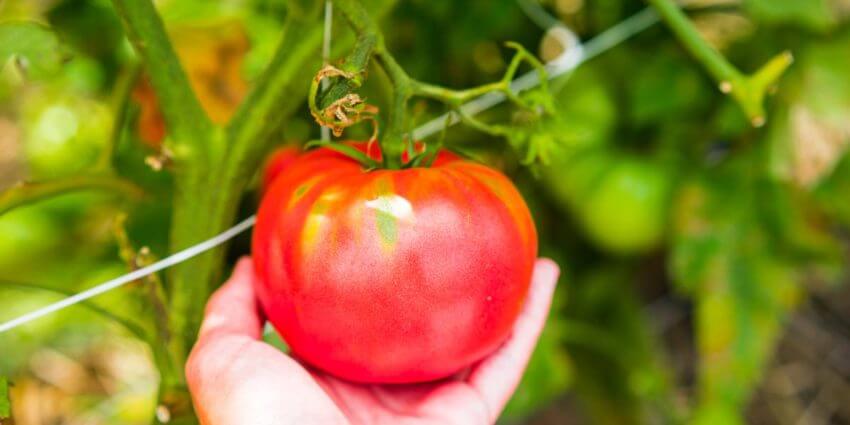There is a lot of misinformation out there on soil based probiotics (SBOs). Mostly scare tactics to either boost ratings for their website / blog, or sell their own, non-SBO, probiotic. Can SBO’s be dangerous? Yes… but so can water, bread yeast, peanuts, even oxygen can be dangerous if used inappropriately. The truth is SBOs, also known as HSOs (“homeostatic soil organisms”), are natural, found in the environment, and many different strains belong inside the guts of humans.
Soil based organisms have been around long before humans inhabited this planet. When humans came along their guts were inhabited by these organisms, just like the guts of all mammals. The environment of the colon is moist, protective, and a constant source of food; what’s not to like? Our immune system lets them stay because most of them do us no harm, and like other probiotics, they provide benefits to us.
At any point in our history, prior to about 150 years ago, our ancestors consumed SBOs on a daily basis. SBOs were on, and in, the fresh organic vegetables and plants they ate. Today our modern farming practices use pesticides, herbicides and other chemicals to kill off most of the organic bacteria living in the soil. This keeps the vegetables fresher. We also don’t trust our food supply (in part because of those chemicals), so we wash and scrub them in chlorinated water, sometimes using “vegetable soap”, then cook them. There is very little chance of microbes surviving all of that. That’s if people even purchase “fresh” vegetables, many people eat almost nothing but processed foods, and nothing is living in that.
I still have memories of spending summers with my Grandfather in Louisiana on his small, almost hobby, farm, helping him plant and pick various vegetables. The tomatoes were my favorite as we would just pick them off the vine and eat them. Literally sometimes flicking off bugs first. Huge, dark red, full of juice, and covered in nature. We ate them like apples. Leafy vegetables and carrots would make their way into salads, receiving only a quick rinse to wash off the loose dirt and bugs. Watermelon and cantaloupe never got washed and usually our hands didn’t either. Everything was covered in the soil based organisms that lived in the dirt. I was never sick as a kid, and neither was my grandfather (he died of “mesothelioma”, an asbestos related lung disease from his work in World War II helping build ships for the war effort).
I’ve read blogs trying to scare people into believing that all SBOs are bad, “sterile is best”. SBOs are “spore forming” (they already sound scary don’t they?), the bacteria that cause tetanus, botulism, gangrene, and anthrax are all spore forming! They’re also “related” to probiotic SBOs. So all “spore forming” bacteria must be bad, right? No, not at all.
Bacterial spores are very resistant, they form spores so that they can survive harsh conditions; conditions such as dryness (e.g. on cow dung out in the sun and wind), extreme cold (so they can survive winters on that dry cow dung), and even much hotter than normal temperatures (like cow dung in the Louisiana sun!) Many very beneficial bacteria strains that inhabit our guts are spore forming. They often don’t need to form spores within us, but when challenged by a competing bacterial infection they’ll often form spores to protect themselves from the toxins released by these bacteria. This is beneficial to us as it allows this probiotic bacteria to survive infections and repopulate the gut. They can even sometimes survive a round or two of antibiotics, this too is a good thing (but don’t count on enough always surviving). We shouldn’t be surprised that so many bacteria are spore forming, these are the survivors, both those that are beneficial to us and a small minority that are harmful to us. We are even born with spore forming bacteria! They are passed on to us by our mothers during childbirth; she may have gotten them from her mother the same way (and so on)! Unless you live in a bubble you already have some inside of you. This is how nature works.
Clostridium butyricum is spore forming. This bacteria strain, found in abundance in nature, is known to be probiotic and quite good for us. It produces the Short Chain Fatty Acid Butyrate, and in large amounts (thus its name. See Chapter 2); butyrate is required for a healthy gut and provides us many health benefits. It also interferes with the development of its bacterial cousin, Clostridium difficile, a highly pathogenic bacteria (also known as c.diff). C.Diff infections can be very dangerous and often end up being reoccurring.
There is one popular health site that has really put out some scary articles on SBOs. Even comparing them to anthrax, they both form “endospores”! Yea, and crazy cousin Eddie (from National Lampoon’s Vacation) had a lot more DNA in common to the Griswolds, even though he wasn’t related to any of them (he was married to Ellen’s cousin Catherine) than Bacillus subtilis has to Bacillus anthracis (Anthrax). The point is you can not compare the health benefits / harm bacteria have to humans by looking at their distant cousins. Nor by whether they create endospores or not.
“spores may colonize the small intestine, albeit briefly… Bacillus subtilis… suppress all aspects of Escherichia coli 078:K80 infection… Analysis of the transit of spores through the gut, in this work and elsewhere (14), has shown that the majority of spores are shed between 6 and 24 h in mice. It therefore seems likely that germination is occurring during the first 24 h… we propose that after 18 h significant numbers of spores are germinating but the majority are shed in the feces. Germinated spores will either be killed, perhaps by the action of bile salts, or, after a few, limited rounds of growth and division, form spores to escape the increasingly hostile conditions found in the gut.” PubMed #PMC127533
“CONCLUSIONS: This study identified 3 subsyndromic factors of IBS: general ill feelings/nausea, indigestion/flatulence, and colitis. In this methodologically oriented double-blind study in patients with IBS, combined probiotic-prebiotic treatment with Prescript-Assist was associated with significant reductions in these factors.” — PubMed #16117982
“Based on the results from the present 1-year extension study, treatment with this probiotic-prebiotic complex may be an option for short-term (2-4 weeks) and long-term ( approximately 60-week) reductions in IBS symptoms.“ — PubMed #17692729
Even though some bacteria are “spore forming” most strains do not continue to colonize the gut for very long. The study above was on chickens; in humans other information I’ve seen indicate that many spore forming strains are gone from our system within 7-31 days after you stop supplementing or consuming them, and barely detectable after 27 days (depending on the strain). These bacteria prefer the soil, where they’re from, and even though there is a lot of food for them to eat in our gut, the conditions are just not what they prefer. Only strains that normally inhabit our gut (naturally) stick around.
For example, the only reported case of anyone ever getting sick from Bacillus subtilis (a strain found in many probiotic formulas and one of the most studied probiotic strains) was related to exposure in nature, not probiotics. And that is in someone that already was near death from other causes and was severely immune-compromised. Yet millions of people have taken this SBO strain in their probiotic!
The best way to prevent a spore forming bacterial disease, especially in the gut, is to have beneficial probiotic spore forming bacteria already there in sufficient numbers. People worry about very rare opportunistic infections from beneficial bacteria should understand that you can not avoid SBOs, they’re everywhere. Because they are so tough they can survive on surfaces for years. If you become so immunocompromised that SBOs are a concern, then by all means avoid SBO supplements, visits to a farm, a walk in the woods, etc. But still don’t expect to avoid SBOs unless you live in a bubble.
With this in mind, several companies have come out with soil based probiotics with strains that have very little scientific evidence of safety or efficacy. I’ve also received reports from people telling me they developed additional gut issues after using these products; these symptoms lasted for months. I would recommend sticking to species/strains that have good, independent research. Clostridium butyricum and bacillus subtilus are two strains with a ton of research and I recommend both of these. Bacillus subtilis is contained in Phage Complete and has many studies showing safety and efficacy in improving gut health.
All images posted by John Herron are either "Copyrighted John Herron", or are copyrighted by someone else and are used under license. So please don’t use them elsewhere, you’ll get in trouble.


 Phage Complete comes with a full 30 day money back guarantee, for U.S. purchases this includes the original shipping charges to you!
Phage Complete comes with a full 30 day money back guarantee, for U.S. purchases this includes the original shipping charges to you!